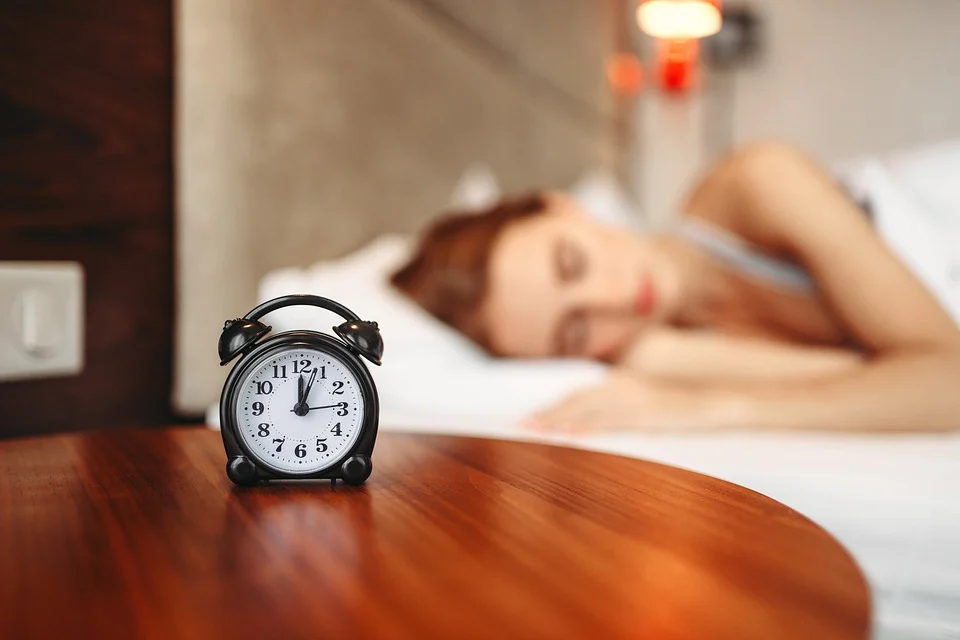Do you spend a lot of your day feeling tired and exhausted? Sleep is so important to our health, but it is often overlooked as a vital part of our day to recharge and recover. Getting at least 8 hours of sleep every night helps us with problem solving skills by improving memory retention and recall. Sleep also reduces stress levels in the body which has been shown to decrease inflammation in the brain that may lead to depression.
A good night’s sleep will help you be more productive at work while increasing mental alertness, reducing fatigue and boosting energy levels! This is especially important for busy moms who already lack the time in their day to even think about being productive! Here are some of the health benefits that a good night’s sleep can provide if taken seriously.
Boosts Your Immune System
Sleep is essential for the immune system to function properly. When you’re tired, your body produces more cortisol – a stress hormone that suppresses the immune system. Lack of sleep has also been linked with increased rates of sickness and infection which can really hinder your physical and mental performance throughout the day.
Can Assist In Weight Loss
Getting a good night’s sleep has been linked to increased levels of the hormone leptin which helps to regulate appetite. Therefore, by sleeping an appropriate amount each night, you will feel more alert and less hungry throughout the day, cutting down on those afternoon snacks. As a result, sleep deprivation can lead to weight gain as our brain tends to crave high calorie foods when we’re tired – typically processed food that’s packed with fat and sugar.
Sleep also regulates our metabolism and when we’re not getting enough sleep, it can slow down your metabolism leading to weight gain (even if you eat a healthy balanced diet).
Maximises Athletic Performance
Sleep is an essential part of athletic training as it is the time that muscles are repaired and new muscle tissue is built after exercise. Studies have shown that athletes who sleep eight or more hours per night are able to train harder, perform better and recover quicker than those who don’t.
Sleep deprivation has also been linked with decreased levels of testosterone which can lead to muscle fatigue throughout the day – something particularly important for people trying to bulk up.
Can Lower The Risk Of Heart Disease and Stroke
Studies show that people who don’t get an adequate amount of sleep each night are at a higher risk for heart disease and stroke. Sleep deprivation can cause an increase in blood pressure and cholesterol levels, as well as increasing the likelihood of developing obesity or diabetes – all of which are major risk factors for heart disease and stroke.
Keeps Your Brain Switched On
Not getting enough sleep can have a serious effect on memory retention, stress levels and cognitive function. As we get older, our brain function begins to decline, but studies show that getting enough sleep can help to keep our brains healthy and functioning properly for longer. Sleep deprivation has also been linked with cognitive impairment like Alzheimer’s Disease, while getting the right amount of quality sleep helps us to retain information by improving memory function.
Helps You Focus
Studies have shown that people who don’t get enough sleep are more likely to have trouble focusing and paying attention, especially if they’re trying to learn something new. Sleep deprivation can also lead to feelings of irritability and frustration, making it difficult to concentrate on anything for long periods of time.
Poor Sleep is Linked To Poor Mental Health
Lack of sleep has been linked with mental health issues like depression, anxiety and stress. Sleep deprivation can increase feelings of sadness while disrupting your body’s circadian rhythm which regulates moods throughout the day. Studies have also shown that people who don’t get enough sleep are more likely to suffer from insomnia at some point in their lives than those who do get enough sleep. If you do have insomnia or sleeping difficulties like sleep apnea, a CPAP machine can help you get the sleep you need to improve your night time routine and mental health.
Sleep has also been linked to improved cognitive function in people with depression and anxiety, so getting a good night’s rest may help you reduce the symptoms of mental health problems over time if taken seriously.
Prevents Burnout
If you’re feeling run down and constantly exhausted, chances are you’re experiencing burnout. Sleep is one of the best ways to prevent and recover from burnout. When we don’t get enough sleep, our stress levels tend to be higher which can lead to feeling overwhelmed and overworked.
A good night’s sleep will help to restore your energy levels and make you feel more motivated and positive about life. Sleep also helps to improve our mood, making us less likely to feel stressed or anxious.
